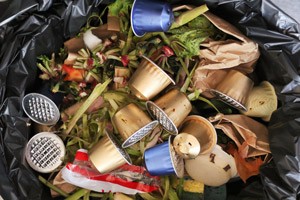COFFEE CAPSULES: Market share of plastic compatible capsules grows to 22% / Dominance of major suppliers challenged after 2012 patent expiries / Report by AMI Consulting and Plastic Technologies

Plastic coffee capsules that are compatible with Nestlé’s “Nespresso coffee capsule machines and other brands are increasing their penetration of the global coffee capsules market, and now account for more than a fifth of all capsules, says AMI Consulting (Bristol / UK;www.amiplastics.com) in a new report. According to the report “Single Serve Beverage Capsules – Market Overview”, compiled together with plastic packaging company Plastic Technologies (Holland, Ohio / USA; www.plastictechnologies.com), plastic compatible capsules – across all brands of coffee capsule machines – account for 22% of the coffee capsules market worldwide by unit volume. The Nespresso system is the world’s biggest selling system with volumes of about 17 bn units, including both aluminium capsules and plastic Nespresso compatibles.
Coffee capsules are no longer a niche market, and the former dominance of the major suppliers has been challenged by new players following patent expiries in 2012. While in the mid- to late-90s the sector was limited to pioneers Nestlé (with Nespresso) and Keurig Green Mountain (with “K-Cups), in the 2000s the capsules format has become more popularised, with the arrival of brands such as “Dolce Gusto (by Nestlé), “Tassimo (by Kraft, now Jacobs Douwe Egberts) and “A Modo Mio (by Lavazza). In 2012, Nespresso and Keurig design patents expired, creating new opportunities for both end-users and converters to tap into this growing market segment, says the report. “Albeit with some legal battles, these circumstances triggered the development of Nespresso-compatible brands and own label products that could now rely on the Nespresso machines instalment base, but offer a more competitive retail price for the capsules, it states. Barriers to enter the capsules segment became lower, both from filling and moulding perspectives, it adds.
The transformation of the coffee capsules industry has had an adverse effect on the premium image of the segment: the average price has fallen and the quality of some capsules available on the market is poorer, says the report. Potential machine malfunctions arising from the use of compatibles has introduced some operational challenges for Nestlé and its machine partners relating to machine servicing, it notes.
Interestingly, the North American market has not experienced an influx of Keurig imitations post-2012 to the extent that Nestlé has experienced with Nespresso, the report adds.












